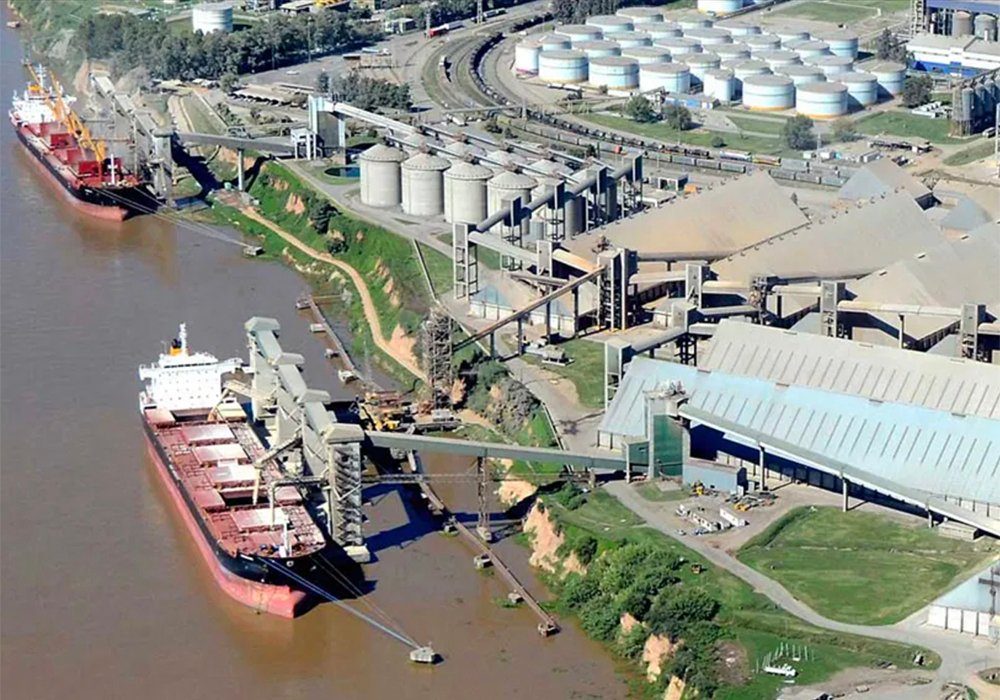Ship traffic stops at Argentine grains hub Rosario due to strike

BUENOS AIRES, May 26 (Reuters) – Ships were unable to move at the Argentine grains hub of Rosario on Wednesday due to a strike by tugboat captains and other maritime port workers demanding access to COVID-19 vaccinations.
A second wave of infections has hit the country, spurring the government to strengthen lockdown measures against the pandemic, but the rollout of vaccines has been slow.
“We can load and unload ships. But we cannot berth and unberth them. That is the restriction,” Guillermo Wade, manager of Argentina’s Chamber of Port and Maritime Activities (CAPyM), told Reuters on Wednesday.
Eleven unions, representing workers key to the docking and undocking of cargo ships, issued a statement on Tuesday announcing their second 48-hour work stoppage. The first, last week, paralyzed traffic at Rosario, a constellation of ports that ships about 80% of Argentina’s agricultural exports.
The workers demand to be designated as “essential” in order to get priority vaccinations. Last week’s strike by the same unions caused delays in shipping from Rosario and other ports.
The unions said the new strike was called for “given the exponential increase in cases, the regrettable loss of several colleagues and the failure of all negotiations we have held with national authorities.”
So far, 75,056 people have died from the virus in Argentina, according to official data. Lockdown measures, including a nightly curfew, have been strengthened nationwide.
The only labor groups given priority for vaccines in Argentina have been health workers, police and educators.
The country is the world’s No. 3 corn supplier and top exporter of soymeal livestock feed used to fatten hogs and poultry from Europe to Southeast Asia.
The strikes are occurring during high export season. Argentine farmers are currently harvesting soybeans and corn, the country’s two main cash crops.
Source: producer.com

